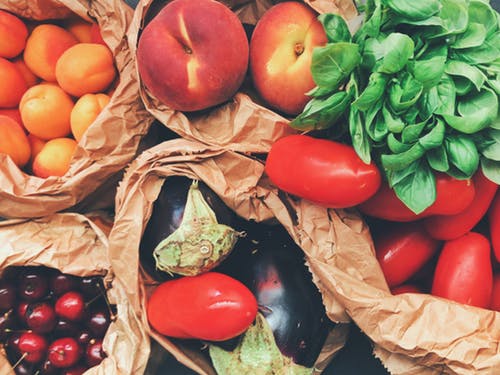Posted: Aug 16, 2019

The role of food waste in the rising climate crisis is spawning a new market for businesses that can help solve a part of the problem.
The United Nations has identified food waste as one of the world’s biggest contributors to carbon dioxide emissions.
Food waste has a combined social, environmental and economic cost of $2.5 trillion annually, according to the U.N.
As popular debate continues to grow around the rising climate crisis, a new industry is emerging to take a bite out of one of the key culprits: Food waste.
According to the United Nations, food wasted in the supply chain and at the dining table is one of the biggest contributors to global climate change, generating 4.4 gigatonnes of carbon dioxide equivalent on an annual basis. Represented as a country, it would be third only to the U.S. and China.
The implications of that improvidence on the environment and society are evident. But, increasingly, economies are waking up to why it’s important for businesses to introduce measures to tackle the issue.
According to the U.N., the price tag for the combined costs of social, economic and environmental impact comes up to $2.5 trillion annually. That shortfall is also spawning a new wave of businesses hoping to take a piece of that pie with their food waste solutions.
Food redistribution
One such business is The Food Bank Singapore, a Singapore-based food bank that collects excess food from suppliers and re-distributes them to care homes and charitable organizations such as soup kitchens.
The non-profit organization’s co-founder Nichol Ng told CNBC it aims to tackle the two-fold issue of food waste and food scarcity by encouraging individuals and corporations to donate excess produce for redistribution among its network of 310 charities and 200,000 individuals.
But she said there’s still a long way to go in educating companies to limit food waste at the source.
“It’s still an uphill task, honestly,” Ng said Monday. “I think it’s also the way the market has been mapped out for many, many years,” she said, noting that supply chains are not well set up to respond to today’s changing food demands.
‘Upcycling’ at the source
To assist with educating people, Good For Food, a data analytics company, offers its smart tracker technology to hotels and large commercial kitchens to reduce food waste and save costs.
“There are many solutions that help redistribute or recycle food waste, but almost no solutions out there that help prevent it in the first place,” its CEO and Co-Founder Rayner Loi told CNBC Monday.
“What could be more helpful is helping the kitchen understand how they can reuse certain items or certain ingredients in other parts of the menu,” he said, giving the example of deep-frying otherwise redundant potato peelings and using them as a garnish.
“Instead of it going to waste, they’re upcycling it,” he said, referring to creative ways of reusing unwanted materials and converting them into something useful, or even beautiful.
Loi claimed his company’s “actionable insights” provide customers a 30% to 50% reduction in food waste within the first few months of implementation, and even provides cost savings of 3% to 8%.
Turning waste to energy
Meanwhile, food scraps that are unusable are finding a new life in the form of fertilizers and cooking gas, thanks to energy companies like Israel-based Homebiogas.
The business uses bacteria to break down foods, including fruits and vegetables, meat and diary, and converts it into biogas.
The co-founder of HomeBiogas, Yair Teller, told CNBC’s Sustainable Energy this month that the technology was a clear solution for dealing with the world’s food waste problem while tackling energy shortages.
“For energy, for electricity, for hot water, for anything that we need, all of it can come from … organic material,” he said.
“This way, we also can treat the organic waste that today is pouring into our rivers, into our wells, into our seas, contaminating all our environment,” Teller said.
By Karen Gilchrist
August 12, 2019
Source: CNBC.com
Go-Wine's mission is to organize food and beverage information and make it universally accessible and beneficial. These are the benefits of sharing your article in Go-Wine.com